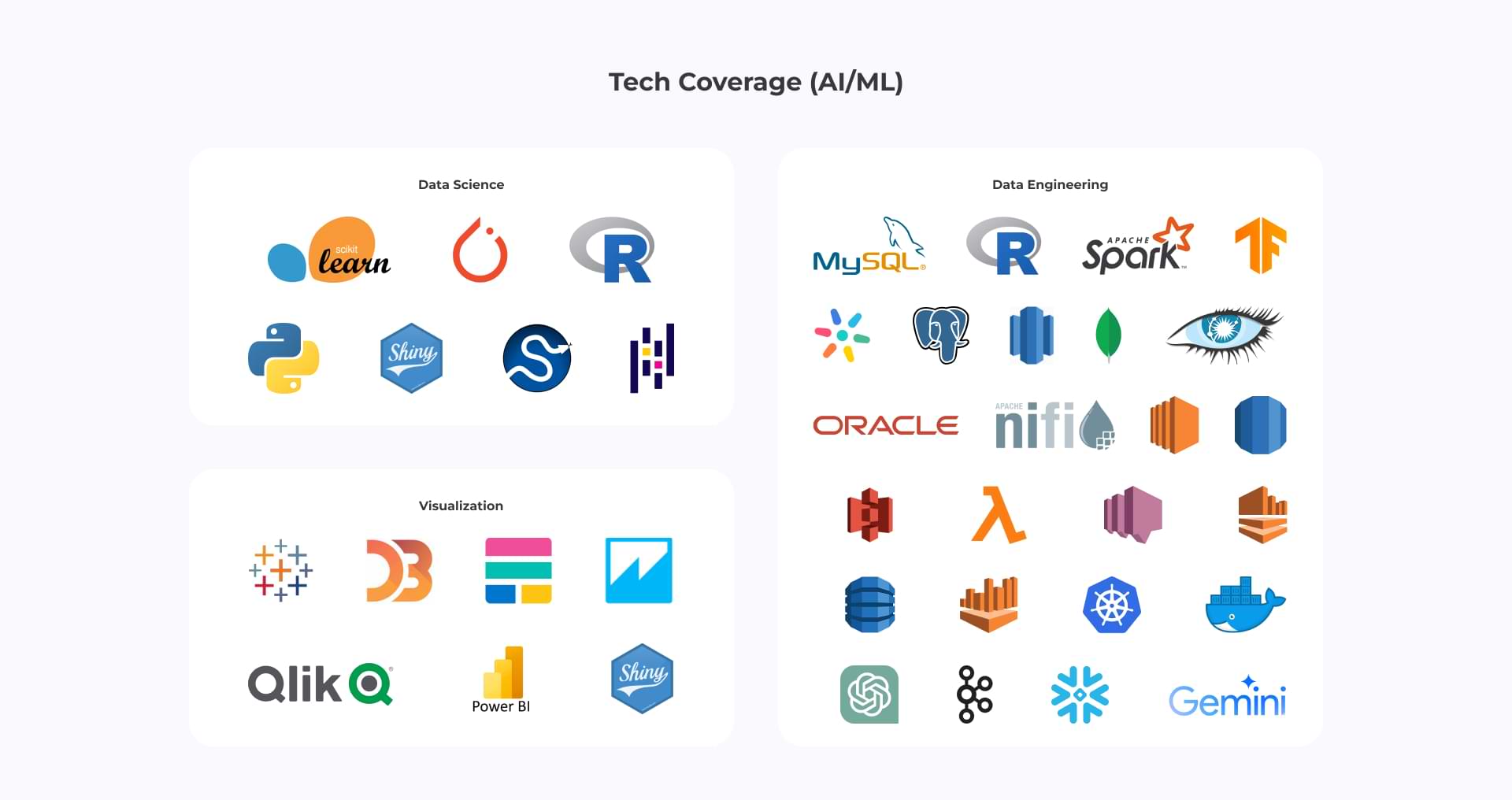From Repetitive Tasks to Intelligent Workflows: The Rise of AI-powered Automation
The relentless march of technology continues to reshape our world, and artificial intelligence (AI) is at the forefront of this revolution. When combined with automation, AI unlocks a new level of efficiency and innovation across diverse industries. This article explores the far-reaching applications of AI automation, delving into its impact on specific areas like business processes, software testing, and more.
Let’s connect
Book a meeting
AI Automation: Redefining Efficiency
AI automation refers to the use of AI algorithms to automate tasks traditionally performed by humans. These algorithms can analyze vast amounts of data, identify patterns, and make decisions with increasing accuracy. By automating repetitive tasks, AI frees up human resources for more complex work, streamlines workflows, and minimizes errors.
Here’s a glimpse into how AI automation is transforming businesses:
- Enhanced Customer Service: AI-powered chatbots provide 24/7 customer support, answer frequently asked questions, and resolve simple issues. This not as it were moves forward client fulfilment but to diminishes the burden on human agents.
- Streamlined Data Processing: AI automates data entry, data extraction, and data analysis, saving businesses significant time and resources. AI can also be used to identify anomalies and patterns in data, leading to better decision-making.
- Personalized Marketing: AI analyzes customer data to create targeted marketing campaigns and personalized recommendations. This ensures that customers receive content relevant to their interests, leading to higher engagement and conversion rates.
- Improved Risk Management: AI algorithms can analyze historical data to identify potential risks, such as fraudulent transactions or financial irregularities. This allows businesses to take proactive measures and mitigate these risks.
The benefits of AI automation extend far beyond these examples. As AI technology continues to evolve, we can expect even more innovative applications to emerge across various sectors.
AI-powered Test Automation: Ensuring Flawless Software
Software testing is a pivotal step in the computer program improvement lifecycle. However, manual testing can be time-consuming, tedious, and prone to human error. AI-powered test automation offers a powerful solution to these challenges.
AI algorithms can learn from existing test data to identify patterns and generate new test cases. This helps ensure comprehensive software testing and reduces the need for manual script creation. Additionally, AI can analyze test results to identify bugs and defects with greater accuracy, leading to faster bug fixes and improved software quality.
Exploring the World of AI Games Online
The rise of game AI has also fueled the fashionability of AI games online. These games hole players against sophisticated AI opponents, offering a unique and grueling experience. AI simulators are another intriguing operation of game AI. These tools can be used to produce realistic simulations of colorful scripts, allowing players to train for real- world situations.
Here are some key advantages of AI-powered test automation:
- Increased Efficiency: AI automates repetitive test tasks, freeing up human testers to focus on more complex scenarios.
- Improved Exactness: AI calculations can analyze information and recognize unpretentious bugs that might be missed by human testers.
- Enhanced Scope: AI can create modern test cases based on learned designs, guaranteeing a comprehensive test scope of the software.
- Reduced Costs: By automating tasks and improving testing efficiency, AI helps businesses save time and resources.
As AI technology advances, AI-powered test automation is poised to become an essential tool for ensuring software quality in the fast-paced world of development.
AI and Automation: A Perfect Match
The synergy between AI and automation is a powerful force that is driving significant change across industries. AI gives the insights and decision-making capabilities that conventional robotization needs. This combined power unlocks a new level of automation possibilities.
Here’s how AI and automation work together in various applications:
- Smart Manufacturing: AI analyzes sensor data from machines to predict equipment failures and schedule preventive maintenance. This helps to minimize downtime and optimize production processes.
- Autonomous Vehicles: AI algorithms power self-driving cars by analyzing sensor data and making real-time decisions about navigation and obstacle avoidance.
- Fraud Detection: AI analyzes financial transactions and identifies suspicious activity that might indicate fraud. This helps to protect businesses and consumers from financial losses.
The potential applications of AI and automation are limitless. As these technologies continue to develop, we can expect even more groundbreaking innovations that shape the future of various industries.
While AI automation offers immense benefits, it’s important to acknowledge potential challenges. Ethical considerations regarding data privacy and job displacement require careful consideration. However, by approaching AI automation responsibly and strategically, it has the potential to revolutionise how we work and live, paving the way for a more efficient and prosperous future.
Global success stories
Here are some related content that highlight our capability in delivering AI solutions that save costs as well as boost productivity.
Manufacturing 4.0:



